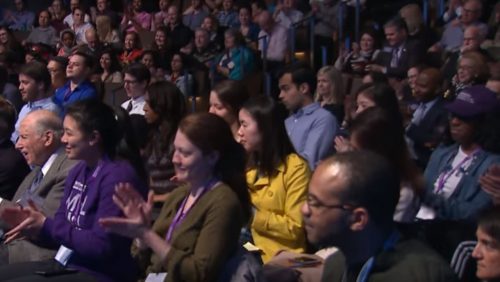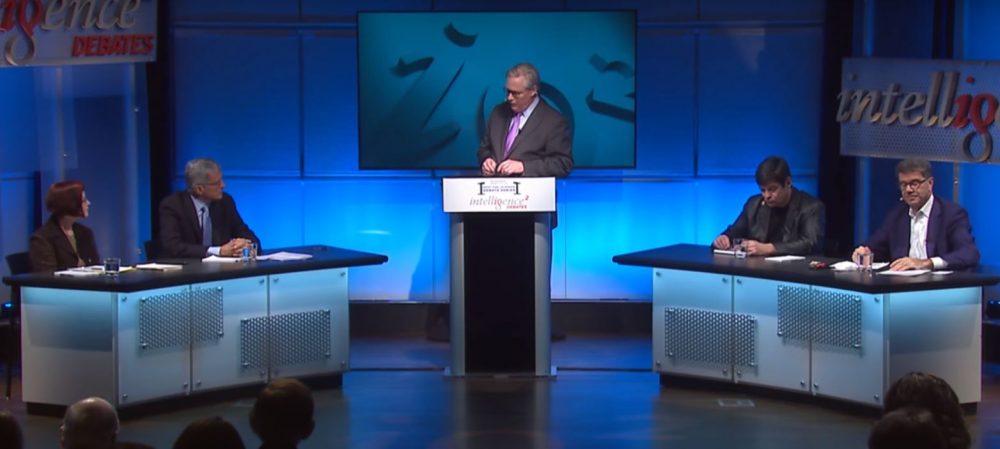On Tuesday, Northwestern Law hosted the second Newt and Jo Minow Debate, “Preserve Net Neutrality: All Data is Created Equal,” to a packed Thorne Auditorium. After a lively and sometimes heated ninety minutes, the team arguing against the motion won out, swaying eight percent of the audience to their side.
“The information superhighway to hell is paved with good intentions,” began Michael Katz, a professor at the University of California at Berkeley and the former chief economist for the Federal Communications Commission, as he launched the case against the motion. Both he and his debate partner, Nick Gillespie, highlighted the risks of giving government more power over free speech and the negative consequences of regulating internet providers, like reducing incentives to serve rural areas and low-income communities. Gillespie is the editor-at-large of Reason, the libertarian magazine of “Free Minds and Free Markets.”
Tom Wheeler, former chairman of the Federal Communications Commission under the Obama administration and a current fellow at the Brookings Institution and Harvard Kennedy School, who argued for the motion, emphasized the importance of “non-discriminatory equal access.” He and his debate partner, open-web advocate and Mozilla Corporation chairwoman Mitchell Baker, argued that net neutrality is necessary to prevent internet carriers from controlling what the public can access online. Besides limiting consumer choice, an absence of net neutrality regulations could stifle innovation and create unfair competition, they said. “Without net neutrality, companies also have no motivation to protect your privacy,” argued Wheeler.
This year’s debate was the second in the Minow Debate Series, which engages outside experts, law school faculty and students on timely legal topics. In 2015, the debaters argued the motion “U.S. Prosecutors Have Too Much Power.” The series, which is free and open to the public, is produced in partnership with Intelligence Squared Debates, a nonpartisan, nonprofit organization committed to “restoring civility, reasoned analysis, and constructive public discourse.”
To find out more about the debate, read our recap of the event. Better yet, watch the debate online.

MSL Students at the Minow Debate






